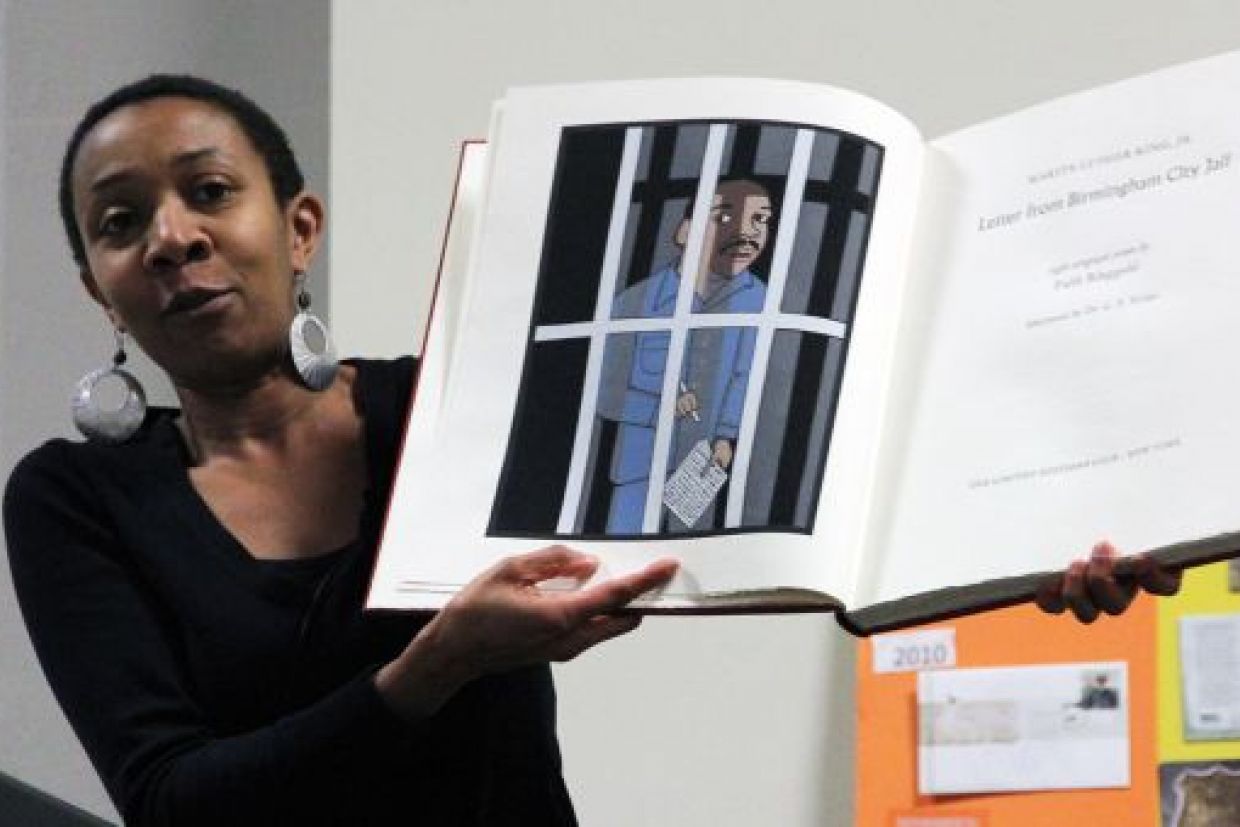“People should take the opportunity of Black History Month to dig a little deeper and learn a new story,” says Stephanie Simpson, Artsci'95, Ed'97, MEd'11 and Director of the Queen’s Human Rights Office.
This year’s launch celebration of Black History Month at Robert Sutherland Hall focused on shining a light on black Canadian heroes and their stories. These stories counter the assumption that blacks in Canada did not face the same kinds of civil rights struggles that their American counterparts endured. And while the evening’s speakers encouraged audience members to see themselves as part of a continuum moving forward for change, the lessons embedded in those stories remain relevant today.
Those lessons are especially apparent in the story of Hugh Burnett, a Second World War hero who grew up in the tiny town of Dresden, Ontario.
Located just north of Chatham, Ontario, and about 120 km from the U.S. border, Dresden was an important terminus of the Underground Railroad. An estimated 30,000 people crossed into Southwestern Ontario between 1834 and 1860, following the abolition of slavery throughout the British Empire. Josiah Henson escaped to what was then Upper Canada in 1830 and founded the New Dawn Settlement in Dresden. Henson’s autobiography was the inspiration for Harriet Beecher Stowe’s anti-slavery novel, Uncle Tom’s Cabin.
How did this key part of the Underground Railroad become ground zero in the struggle for black civil rights in the modern desegregation movement?
As Dresden grew into a thriving community, segregation between blacks and whites persisted. Simpson explained that, “People were working alongside each other and it felt like to the outside world that everything was fine in Dresden. Even in this small place where everyone smiled at each other and was cordial, there was in fact, de facto segregation happening. [Blacks] were charged higher insurance premiums, they were denied loans and jobs, and were subject to curfews.”
In the early 1940s, Hugh Burnett, having returned home to Dresden from active service in the Second World War, was shocked to discover that -- even in uniform -- he was denied service in restaurants because he was black. He wrote to federal Justice Minister Louis St. Laurent, who replied that racial discrimination was not illegal in Canada.
In 1948, Burnett became a founding member of the National Unity Association whose first actions included a petition to Dresden City Council to pass a bylaw outlawing the practice of whites-only businesses. The motion failed. While Burnett lobbied to end this blatant discriminatory practice, the prevailing attitude was that racial discrimination was not really a problem in Canada. There were persistent efforts to discredit Burnett and threats to his life.
Burnett and the National Unity Association continued to lobby and engage in acts of resistance. Thanks to their efforts, in 1951, the Fair Employment Practices Act was passed, followed by the Fair Accommodation Practices Act in 1954, which made it "a statutory offence to discriminate in public places on the grounds of race, creed, colour, nationality, ancestry or place of origin." However, in the first test of the Act in 1955, the judge sided with racist restaurant owners.
“It’s really easy to look back with nostalgia and think with the hindsight that history gives us, that was an obvious path to take, but it wasn’t an obvious path for Martin Luther King Jr. or Hugh Burnett,” Simpson says. “It was a difficult one, and in the case of Martin Luther King Jr., it was one that led to the loss of his life, and people being marginalized and abandoned.”
This year’s Black History Month launch celebration was held in the Robert Sutherland Building on Queen’s campus. The event was co-sponsored by The Queen’s African Caribbean Students’ Association (ACSA) and Black Academic Society (QBAS), and the Kingston Afro-Caribe Community Foundation (ACCF). Emcee and ACSA Educational Officer Bunisha Samuels, Artsci’20, opened the evening by explaining the significance of holding the event in Robert Sutherland Hall. Sutherland was the first black graduate of Queen’s in 1852, and the first black person to be called to the bar in British North America. In 2009, the Policy Studies building on campus was renamed in his honour, following 13 years of student-led efforts to have Sutherland formerly acknowledged on campus.
Kingston Black History Month Calendar of Events
For more information about Black History Month at Queen’s and Kingston visit the ACSA page on Facebook.


